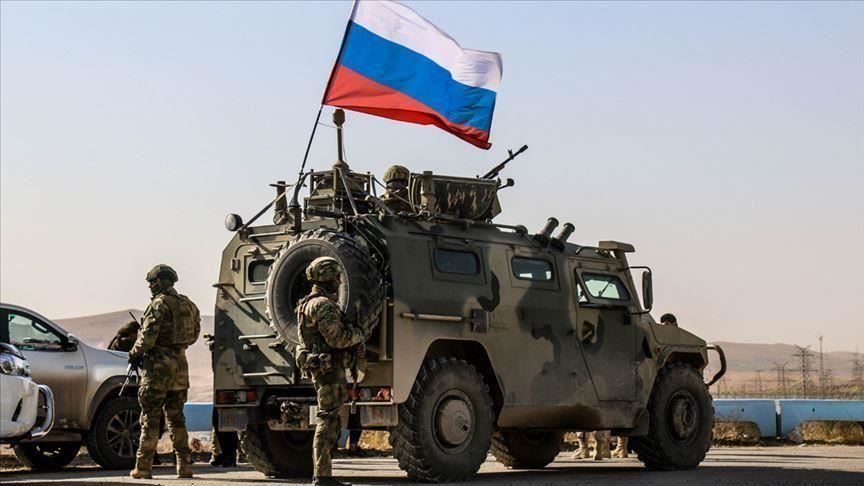Afifeh Abedi told the Strategic Council on Foreign Relations that Russia has threatened to attack Ukraine and has stationed forces near the border as a reaction to the feeling of threat posed by Washington against Moscow.
“The crisis erupted in 2014 in Ukraine resulted in the annexation of Crimea to the Russian soil and caused tensions in the relations between Russia and the West. Tensions were foreseen to continue. Since then, on various occasions, we witnessed the reduction or escalation of this crisis. However, it seems the crisis will continue in the future.”
Russia’s preemption against the United States
He said when Biden came to the White House, it was predictable that some changes would occur in the international scene including regarding Ukraine.
“It was predicted that the maximum pressure of the US against Russia would be heightened when Biden assumes power. In this respect, the US was concerned about the gradual normalization of relations between Russia and Europe due to energy ties which could lead to easing pressure on Moscow. When Biden came to office, the US declared its opposition to the completion of the Nord Stream 2 pipeline project and described it as being in opposition to economic sanctions on Russia. Moreover, we should consider the efforts by the US to reset its relations with Europe.”
This expert of Russia affairs referred to the role of the internal crisis of Ukraine in instigating dispute between the US and Russia, saying that since 2014, the domestic crisis in Ukraine led to civil war and ensuing sophisticated political, economic and security problems. And now, Ukrainian policy makers are seeking to spotlight internal issues for international powers to make them pay some of the costs.
Abedi stressed that recent movements by Russia concerning Ukraine are a function of the domestic conditions of Ukraine as well as Russia’s critical approach to the stances of the new US administration.
This researcher of the Strategic Research Institute of the State Expediency Council said Russia predicted a change in position by the United States after the victory of Biden in 2020 US presidential elections towards the issue of Ukraine and its domestic developments.
“That’s why, the alarm bells were ringing out for Russians who felt their position and achievements in the east of Ukraine in danger. These movements by Russia were more of a response to the threats Russians felt in the east of Ukraine. In fact, they welcomed the threat with preemption and stepped up their military movements in that region.”
The significance of Ukraine for Russia
Referring to the significance of Ukraine for Russia, Abedi said Ukraine enjoys some parts of the nuclear capacity of the former Soviet Union and a geopolitical link with Europe therefore being one of the most significant remnants of the Soviets for Russia.
“The efforts by Ukraine to establish a link with the Western block is a big blow to the Russians who seek to revive their super power status,” Abedi said, adding that Ukraine is home to one of the main naval bases of Russia in the Black Sea and any link between Ukraine and the West would probably endanger such a status and place Russia in security bottleneck.
Russia’s preemptive movements in Ukraine
Referring to the guarantee of the security of marine bases and their expansion in other areas of the world as one of the main principles of the Russian marine doctrine in the past two decades, she said these political and security sensitivities and considerations in connection with Ukraine are very serious for Russia. That’s why given the predictions about the change of US position towards Russia during Biden presidency, they tried to carry out pre-emptive movements in this regard.
She said the Russian military forces have withdrawn from the Ukrainian border and added that Russia would not welcome the escalation of tension in the east of Ukraine.
“Russia’s movements under the circumstances aim at preemption and guarantee a serious warning to the West that Russia will not back down in connection with Ukraine.”
Russia’s political and security approach to Ukraine
“Notwithstanding, the Russians would welcome a political approach aimed at maintaining the status quo in relation with Ukraine and their military warnings are prelude to the creation of a political ground for a series of serious talks concerning the east of Ukraine. It is true that these regions are presently under the control of the Russians; however, addressing their basic needs such as electricity and water requires cooperation with Kiev. That’s why Russia is pursuing a political and security approach as well in the Ukraine issue.”
She pointed out that Russia has announced it will keep its heavy military equipment in the west of its soil for military wargames due to the feeling of being threatened by Ukraine.
She added that removing military forces from the east of Ukraine cannot be described as withdrawal and for this reason, the West is considering Russia’s movements with suspicion.
Abedi said removing some military forces by Russia from the border with Ukraine aimed at easing the tensions and the main point of tension between Moscow and Washington is Russia itself and Ukraine is not the main issue even though it is significant for the US to use it as a tool against Moscow.
“In fact, the United States under the present conditions is trying to exert more pressure on Russia and control its relations with Europe and would not allow a breathing hole for controlling the sanctions imposed on Russia by the West. That’s why the US is trying all its best to exploit the issue of Ukraine against Russia.”










0 Comments